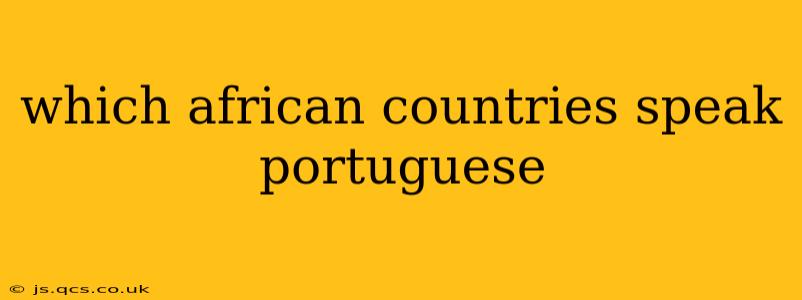Portuguese is a vibrant language spoken by millions across the globe, and its presence in Africa tells a rich historical story. Understanding which African nations have Portuguese as an official language requires delving into the continent's colonial past and its enduring linguistic landscape. This post will explore the countries where Portuguese is spoken, offering insights into its prevalence and cultural impact.
Which Countries in Africa Speak Portuguese?
Five sovereign African nations have Portuguese as an official language:
-
Angola: Located in southwestern Africa, Angola boasts a significant Portuguese-speaking population, a legacy of its colonial past under Portuguese rule. Portuguese remains the official language used in government, education, and media.
-
Mozambique: Situated on the southeastern coast of Africa, Mozambique shares a similar history to Angola, with Portuguese serving as its official language and deeply embedded in the nation's cultural fabric.
-
Guinea-Bissau: A small West African nation, Guinea-Bissau's official language is Portuguese, a reflection of its colonial history under Portugal.
-
São Tomé and Príncipe: This island nation off the western coast of central Africa is also officially Portuguese-speaking, preserving its colonial linguistic heritage.
-
Cape Verde: An archipelago located off the western coast of Africa, Cape Verde is another Portuguese-speaking nation, with Portuguese serving as its official language and integral to its national identity.
How Did Portuguese Become the Official Language in These Countries?
The presence of Portuguese in these African countries is a direct result of centuries of Portuguese colonialism. From the 15th to the 20th centuries, Portugal established extensive colonies across Africa, leaving a lasting mark on the languages and cultures of these nations. While independence movements led to the end of colonial rule, Portuguese remained as the official language in many of these former colonies.
What is the Prevalence of Portuguese Speakers in These Countries?
While Portuguese is the official language, the prevalence of Portuguese speakers varies across these countries. In some regions, it's the primary language of daily life, while in others, it's used alongside numerous indigenous languages. The exact number of Portuguese speakers in each nation is constantly evolving due to demographic shifts and language acquisition patterns.
Are There Other Languages Spoken in These Portuguese-Speaking African Countries?
Absolutely! Each of these countries has a rich linguistic tapestry, with various indigenous languages and dialects spoken alongside Portuguese. These languages reflect the diversity and complex cultural histories of these nations. The interplay between Portuguese and these indigenous languages often shapes the daily communication and cultural identities of these communities.
What is the Future of Portuguese in Africa?
The future of Portuguese in Africa remains strong. While the rise of global languages like English presents challenges, Portuguese maintains its significance as an official language in education, government, and media. Efforts to promote and preserve Portuguese continue to ensure its continued relevance within these nations' rich cultural landscapes.
This exploration offers a comprehensive overview of the African countries where Portuguese is spoken, addressing the historical context and ongoing importance of this language in shaping the cultural identity of these nations.
